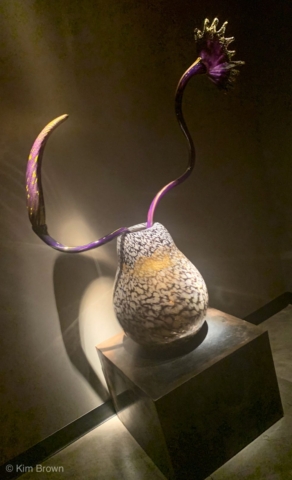02_07_2020
Today I stayed in because I felt run down and tired. Also, my ankle was throbbing. I twisted it the Saturday before I left Tampa. Walking 6.9 miles and climbing the equivalent of nine flights of stairs the day before in Montreux didn’t help. While it felt as if I was missing out, I knew it would be better for the rest of my trip.
Part of me thinks that the pace here in Switzerland invited me to slow down. There seems to be tranquility here that I can’t quite explain. I feel it when I walk along the lake paths or through the city center. I even feel it on the trains and metro between five and six o’clock. There isn’t the same type of hustle and bustle felt in New York or London traveling at the same time. It isn’t that the Swiss people aren’t in a hurry to get wherever they are going. It’s as if they are just calmer about it. It made me think about the stance of neutrality that Switzerland has always taken. Perhaps the people who live here are more at peace with themselves in general. Of course, it’s hard not to be affected by the beauty of the Alps and Lake Geneva.
There are several things I’ve noticed since I have been here.
The public toilets are extraordinarily clean. Each stall has its own little room with a cleaning solution that you can spray on toilet paper to clean the seat and a toilet brush. It’s strange to be writing it, but it’s such a contrast to my first experience with a European toilet almost forty years ago. Back then, our school recommended we bring toilet paper on our trip. That didn’t prepare me for the one time I walked into a public restroom and found a place for your feet and a drain of sorts. Of course, I’ve been in other toilets in other European countries, and they have had varying levels of cleanliness. But here they seem to be very consistent.
Another thing I noticed is that I feel more personally relaxed. I actually took a two-hour nap, which is very unlike me. If I had been at home, I probably would have spent that time watching Netflix. Or I would have felt the need to do something in spite of my body telling me it needed to rest.
It may also be strange to note that I have felt comforted by how many people of color I’ve seen. As a person of color, you don’t always know how you will be perceived or treated when you travel. In the States, you have an idea of what to expect in certain places. You are better able to read your surroundings. But when traveling abroad with a language barrier, it feels as if you’re at a disadvantage. But I’ve felt very welcomed here. It also helps to see several people that look like me even though we don’t speak the same language.
All in all staying in was a good idea even though my meals were a mix of highs and lows.
For lunch, I ordered the pan-seared perch. I wanted to see if there was a significant difference between perch from Lake Geneva and the Great Lakes. I was a little disappointed. The perch tasted oily. At first, I thought it might have been because of how it was cooked. But growing up, we eat fried perch, and I don’t remember the fish itself having an oily texture. It was unpleasant enough that I didn’t finish it and eat my salad instead.
Dinner, on the other hand, was a delight. I had a pizza with Prosciutto and mushrooms. The smells alone sent me swooning. I was a bit worried about whether or not I was going to be able to eat gluten. But neither the roll I eat at lunch or bread I eat the night before made me sick, so I pushed the food envelope a bit further. Biting into the crisp crust made every gluten-free, diary-free pizza I’ve eaten in the past few years seem like a cruel joke. Even though I know it’s only a matter of time before it all catches up with me, I love being able to eat pretty much what I want.











